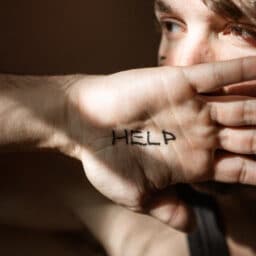INTRODUCTION
The term Mob refers to the crowd. A group of people punishing or killing a person without following any legal procedure believing that something wrong was done by that person is known as Mob Lynching. Mob lynching originated in the United States in the 18th century, and it grew rapidly and outspread too many other nations including India. In recent times, mob lynching has become one of the hate crimes that targets persons of a certain community, members of a minority group, or random people on the basis of mere suspicion. Without obeying any norms of law, the mob takes the law into their own hands to punish the person in the name of justice. Sometimes this leads to the punishing or killing of innocent people believing the rumours. Thus, there is a need for strict laws to deal with this.
CAUSES
- The mob doesn’t have a face. This freedom motivates the crowd to take severe steps
- Judicial proceeding takes a lot of time
- Delay in providing justice
- Absence of faith in the police department
- Less tolerance concerning other’s behaviour
- Spread of rumours and fake news over social media[1]
- Other people’s cultures and beliefs are not treated with respect.
EFFECTS[2]
- It is against the values provided by the constitution
- Courtesy towards law-and-order decreases
- Creates a feeling of anti-nationalism
- Gives rise to a majority V. Minority situation
- There is a chance for Internal wars
STEPS TAKEN SO FAR
- Ek Bharat Shrestha Bharat program
- NOT IN MY NAME campaign
- National Campaign Against Mob Lynching (NCAML) also known as Masuka
Some articles of our constitution that oppose mob lynching:
- Article 14[3] of the constitution opposes discrimination and guarantees the right to equality to every person in India
- Article 15[4] of the constitution prohibits discrimination on the basis of religion, race, caste, sex, and place of birth
- Article 21[5] of the constitution provides the right to life to every citizen
Certain sections of the Indian Penal Code partially applicable to mob lynching:
- Under section 300[6], a person is punished for murder
- Under Section 304[7], a person is punished for culpable homicide not amounting to murder
- Under Section 304a[8], a person is punished for causing death by negligence
- Under Section 307[9], a person is punished for an attempt to murder
- Under Section 323[10], a person is punished for causing voluntary hurt
- Under Section 325[11], a person is punished for causing grievous hurt
Certain sections of the Code of Criminal Procedure partially applicable to mob lynching
- Under Section 223(a)[12], people who commit the same crime in groups of two or more will be prosecuted under the heading “the same transaction”.
- Under Section 357(a)[13], victims or family members of victims of such violence would be compensated for their losses.
WHY IT IS NOT ENOUGH?
None of the provisions of IPC specifically mentions Mob Lynching. When there is no law concerning it, then providing justice and punishing the offenders is nearly impossible. This gives the offenders a chance to commit the crime. It is evident by the fact that the crime of Mob Lynching is increased in the last few years. In the name of justice, a group of people cannot assume the powers of judicial authority. To put it another way, no citizen can implement laws on his own. Mob lynching is to punish someone without legal trials assuming that he has done some wrong. Such acts are inadmissible. By not having any specific legislation, we have been deprived of measures for compensation, rehabilitation programs, and quick justice. There was nothing that could be done about the police’s inactivity. A mob-lynching should be treated as an act against the state, which makes it necessary to include it in IPC. Current laws require a variety of rules to be implemented at once, making it a long process. The new legislation will assist to fill the gap in our criminal jurisprudence.
CASE LAWS
It has been highlighted by the Supreme Court of India in the case of St. Stephen’s College v. University of Delhi[14] that the objective of our Constitution is unity in diversity. India’s unity will be strengthened by preventing the spread of fissiparous tendencies. A broad definition of diversity would cover regional and religious distinctions as well as variations in language and culture. It’s our responsibility to preserve and maintain our country’s unique identity.
The law is the most powerful authority in a civilized society,” the Court Ruled in Krishnamoorthy v. Sivakumar and Ors case[15] of 2015. The court stated that law cannot be tarnished because a person or a group of individuals do not respect it.
In Mohd Haroon and others v. Union of India and Anr case[16], it is held that “it is the responsibility of the State Administration in association with the intelligence agencies of both the State and the Centre to prevent recurrence of communal violence in any part of the State. If any officer responsible for maintaining law and order is found negligent, he/she should be brought within the ambit of law”.
WHAT NEEDS TO BE DONE?
- The act of Mob Lynching should be criminalized.
- Public officials should be subjected to punishment and fine for failing to investigate adequately owing to malice intents or intentional disregard of their responsibilities.
- Make surveys to find out reasons that promote Mob Lynching.
- Civil society organizations must be strengthened. As a result, a sense of community is fostered.
- A senior police officer should be appointed in every district to take action against violence and lynching.
- The responsibility should be taken by the state governments in identifying the regions where the instances of lynching are reported more.
- Steps to be taken to prevent the spread of irresponsible and provoking messages on social media platforms. In accordance with the applicable legal provisions, an FIR should be registered on the persons spreading such messages.
CONCLUSION
In India, Mob lynching is not governed by codified laws, which provides offenders with an advantage in taking the law into their own hands and killing an alleged individual on suspicion alone. A person’s death based on suspicion is not justifiable in the least at all. For a democratic society like India, which is home to diverse religions, castes, and categories of people, strict rules to limit mob lynching are a must. Changes in the judicial system and political mindsets can happen by the introduction of new legislation, which will help avoid this horrific crime.
Author(s) Name: Kethana Tamminaina (Damodaram Sanjivayya National Law University, Visakhapatnam)
References:
[1] Rema Rajeshwari, ‘Mob Lynching and Social Media’ (2019) 14 Yale Journal of International Affairs < http://heinonline.org/HOL/Page?collection=usjournals&handle=hein.journals/yaljoina14&id=20&men_tab=srchresults> accessed 26 July 2021
[2] Raper Arthur F, Tragedy of Lynching. Chapel Hill, University of North Carolina Press.
[3] Constitution of India, art 14
[4] Constitution of India, art 15
[5] Constitution of India, art 21
[6] Indian Penal Code 1860, s 300
[7] Indian Penal Code 1860, s 304
[8] Indian Penal Code 1860, s 304a
[9] Indian Penal Code 1860, s 307
[10] Indian Penal Code 1860, s 323
[11] Indian Penal Code 1860, s 325
[12] Code of Criminal Procedure 1973, s 223a
[13] Code of Criminal Procedure 1973, s 357a
[14] AIR 1992 SC 1630
[15] 2015 AIR (SC) 1921
[16] (2004) 3 SCC 553
















